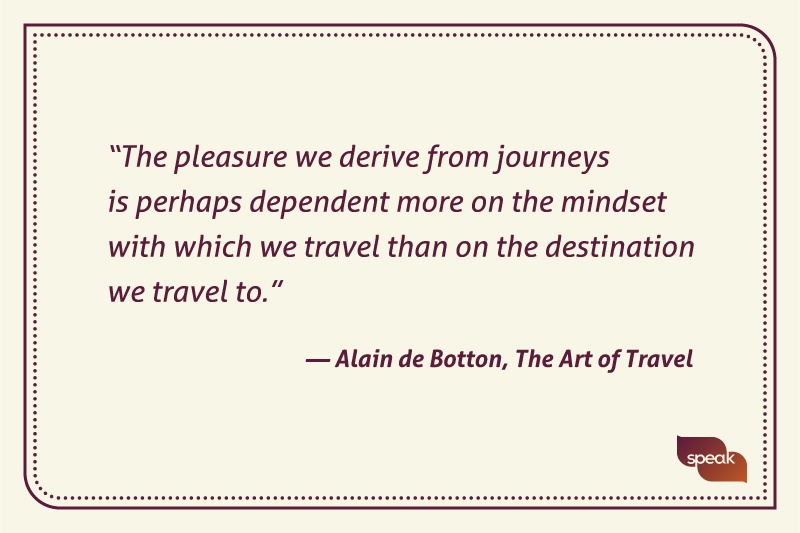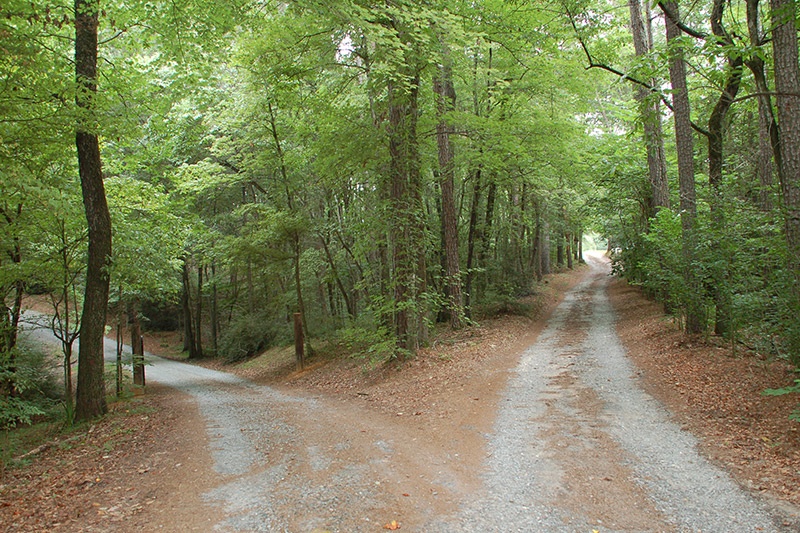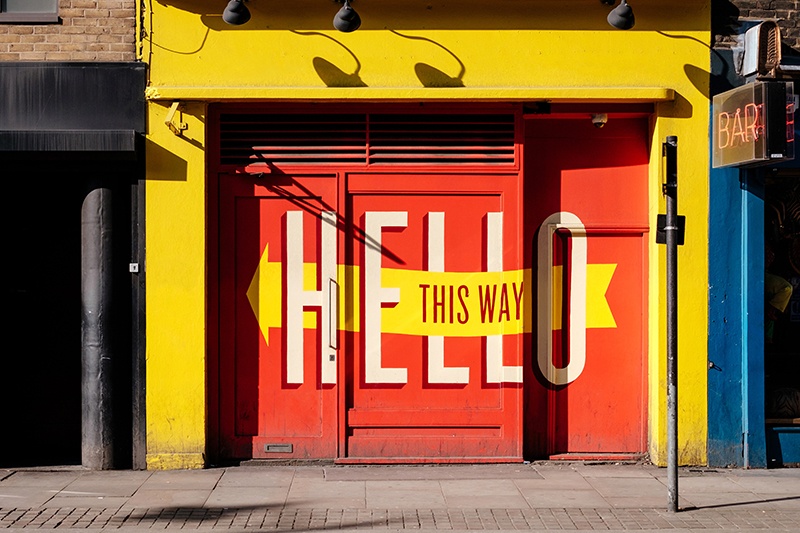This Read section of Speak for Yourself #5 presents three texts - an extract from a book, a poem and a newspaper article. These three authentic texts all explore various aspects of travel and the "road", both in a concrete and metaphorical sense. Read the texts and follow the comprehension and strategy tips presented below each text.
1. "The Art of Travel" (642 w.)
"When feeling sad at home, I have often boarded a train or airport bus and gone to Heathrow" - Alain de Botton - The Art of Travel
Travel writing is, by its very nature, often beautiful and introspective. One of the modern masters of the art is without doubt Alain de Botton. His short writings and essays discuss many aspects of the modern world and travel and how it makes him feel.
This short extract is from his book "the Art of Travel" and describes his amazement at observing aeroplanes arriving at London Heathrow after their journeys of thousands of miles from far-away countries.
As I self-confessed aviation nerd, I also found his book "A week at the Airport" absolutely thrilling and would recommended it to anyone.

COMPREHSION:
Travel texts are often very descriptive and are full of adjectives which give the sensation of new places as well as verbs of sound, sense and movement. Read the text and underline particular adjectives and verbs that de Botton uses to describe the planes and their journey to London. Who or what is he describing with the following language?
1. "A small brilliant white light, a star dropping towards earth"
2. "Grey-brown, turbulent waters"
3. "Suspended like earrings"
4. "Its nose raised upwards"
5. "Colours against the grey horizon, like sails at a regatta"
6. "Four giants"
7. "Rectangular rubber lips"
8. "A supernatural tinge"
Key:
1. The Boeing 747 as it arrives into sight
2. The waters of the North Sea that the plane had just crossed
3. The engines of the Boeing 747
4. The "nose" of the plane
5. The coloured tail fins of all the planes on the runway
6. Four large planes waiting patiently from Canada, Brazil, Pakistan and Korea
7. The rubber trimming of the airport "fingers"
8. The strange sensation of being in another country (in this case, England)
2. "The Road not Taken" (144 w.)
"Two roads diverged in a yellow wood / And sorry I could not travel both..." Robert Frost (1874-1963)
This Poem by the great American poet, Robert Frost is one of his most famous and, perhaps, one of his most "misunderstood" works. A short poem which describes a journey into a wood, Frost was inspired by walking in the woods in England when he was a boy.

The poem is a metaphor for life and making decisions - a question we often ask ourself is: Which road should I take? Read the poem by Frost and ask yourself - was the writer happy with the road he decided to take? Does he think it will be possible to take a different road in the future?
The beauty of this poem is its sense of dilemma. We recognise the type of choice that the writer describes in our everyday decisions, both large and small.
STRATEGY:
Reading "out loud"
Poems can often be difficult to penetrate when we are learning a language. The vocabulary and structures used are obviously very different from everyday language and so are often challenging. When faced with a poem like the example of Robert Frost above, a good initial strategy is to read the poem "out loud". Don't by shy - get the poem and read it in the mirror or practice reading and making a video of yourself. Poetry is made to be read (and sometimes almost "sung") and the natural rhythms of its structure help learners to "hear" the way the English language sounds.
3. "The World's First Electrified Road" (610 w.)
"There is no electricity on the surface - you could walk on it barefoot" Hans Säll, chief executive of eRoadArlanda Consortium
This article is taken from the Guardian newspaper. It describes a great scientific breakthrough in Sweden which has developed the world's first electrified road.

The technology is quite simple - the road (about 2km long near Stockholm) has small tracks which transfer electricity to vehicles as they travel along the road. The electric current charges the vehicles and therefore powers them.
The company behind the project underlines the great environmental benefit of the system and also says that the price of €1m / km of electrified road is also competitive.
Texts like this which describe technology and scientific developments often use passive forms. Indeed, this text is full of example of passive forms in English. Read our "Language in Context" section to discover how passive forms are used. Click on the link below!









